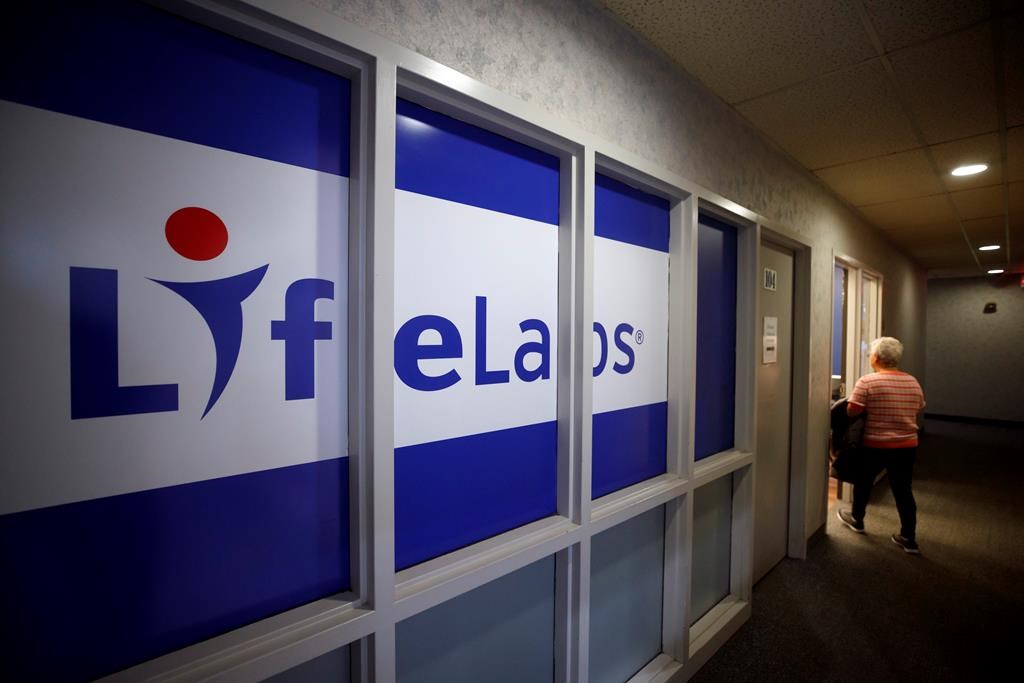As an endometrial cancer survivor, Linda Luyt gets quite anxious waiting for the results of her annual Pap test to show she is still free of the disease.

It usually takes between three and six weeks to receive a letter with the all clear, she said, noting that her doctor would call sooner with any abnormal results.
“I wait for the phone not to ring,” she said from her home in Sudbury, Ont.
But this year, her ninth since cancer surgery, Luyt has been waiting for two months since her Pap test in October and getting results could very well take much longer. When she called her doctor’s office to inquire, she was told they had only received results in November for tests conducted in June.
“You think you’ve closed the door on cancer, but every year when I have to go for that check up the door opens again — not all the way, but it’s there,” Luyt said. “You’re thinking, ‘oh my goodness, I have to have this check. What if it’s back?”’
Luyt is one of many across Ontario caught in a Pap result backlog. Both LifeLabs and Dynacare, large private labs that process millions of tests a year, acknowledged delays though neither quantified the scope.
Pap tests can detect pre-cancerous cell changes in the cervix. Luyt worries not just for herself, but for people who may find out they had cancer growing inside them while awaiting delayed test results.

Get weekly health news
LifeLabs and Dynacare both said the backlog can be traced to staffing shortages and an increase in demand at this point in the pandemic.
“As restrictions related to the COVID-19 pandemic lessened, and people returned to in-person consultations, there has been a continued surge in tests ordered for patients,” Dynacare spokesman Mark Bernardt said in a written statement.
As well, LifeLabs — which processes nearly 700,000 Pap tests a year — said there has been a global decline in the number of cytotechnologists, the specialists who search for pre-cancerous cellular changes. Only 12 to 14 new cytotechnologists graduate each year in Canada, the company said.
Michelle Hoad, the CEO of the Medical Laboratory Professionals’ Association of Ontario, said there is a general shortage of lab professionals in the province, but it is particularly acutely felt in specialties such as cytology.
“The number of Pap smears actually went down during the pandemic because as you know, we weren’t going in for in-person visits and the number of surgeries being done went down, so therefore, we didn’t really notice the shortage with this group,” she said.
“But what’s starting to happen now is everybody’s going back in to see their family doctor, and they’re getting their physicals and they’re getting Pap smears and surgeries are ramping up. So all of those tests are going into this bottleneck of this very specialized group.”
Hoad said many of the solutions to the problem are years away from having an effect, such as increasing the number of medical lab technologist programs and boosting the numbers of people current programs can accept.
“Of the six (medical lab technologists) programs in the province, they all have waitlists to get in,” Hoad said. “So there’s tons of people interested in the profession, there’s just not enough seats.”
NDP health critic France Gelinas asked about Luyt’s situation in question period last week, and Health Minister Sylvia Jones said the government is investing in the health system.
“We are hiring and training additional health human resources, whether those are lab technicians, personal support workers, nurses … doctors,” Jones said.
A spokesperson for Jones told The Canadian Press that the ministry is in “constant contact” with labs and Ontario Health — which oversees the health system — to discuss Pap test turnaround times, and is “monitoring” labs’ plans to return to normal service levels.
Dynacare said it is working to alleviate the backlog in part by using labs in other provinces and developing best practices for doctors ordering the tests.
LifeLabs noted that doctors can flag patients at a higher risk so their samples get processed more quickly.







Comments
Want to discuss? Please read our Commenting Policy first.